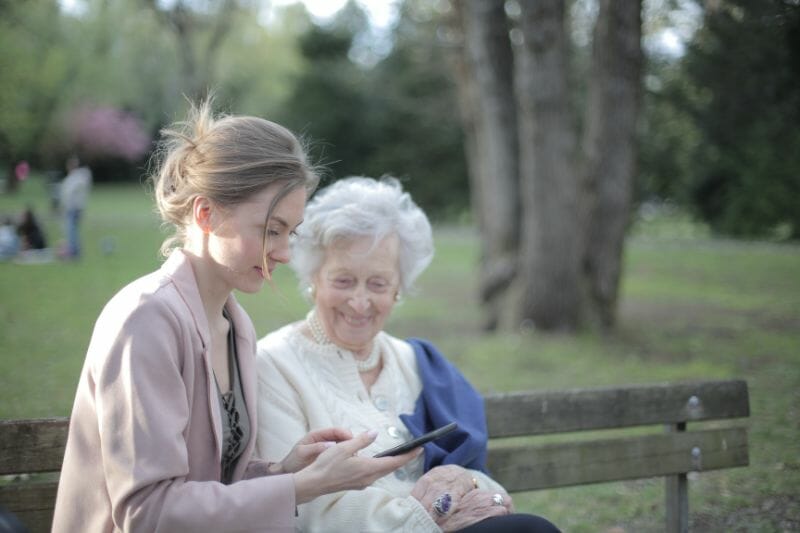Thinking about selling your home to pay for care costs?
Care for those unable to care for themselves can mean many things, from living in a residential home to adaptations to your own dwelling.
We understand that even contemplating selling a beloved home where you may have been happy for decades to fund care bills, either for yourself or someone else, can be a stressful and emotional business, as it can if you’re doing the same for elderly parents. This guide aims to help make the process as easy and hassle-free as possible.

First of all, check with your council to find out exactly what you’re entitled to. After all, local authorities have a duty of care to point you towards the available support and services, even if you are self-funding.
Equally, adult social services teams provide care needs assessments free of charge. These help you to identify which of the available options may best suit you. And if you already have a carer, you could have a carer’s assessment, too.
Assessments help pinpoint how your care needs may have changed over time
You may be so used to coping that you tend to downplay things. Or you may feel your family is just ‘fussing’. But an independent opinion of your care needs can bring clarity and point you in the right direction for accessing support.
You may not have to leave your home
‘Home care’ could mean having regular visits from care workers, or even someone moving in to provide support 24/7, either long-term or to give a family member a break. You may also need help as a temporary arrangement in an emergency, or following a hospital stay.
Bear in mind, however, that having live-in carers can ultimately cost more than residential care.

The advantages to moving into a care home
Think of what you’ll gain – regular company, with cleaning and cooking all taken care of. People will be around as, if and when needed, plus, of course, you get help with personal and (depending on the home) nursing care, too.
Financial assessment
Following the care needs assessment, you’re like to be means-tested
Also called a financial assessment, this identifies whether the council can help you with some or all of your care costs, either at home or in a residential setting.
If you can afford to pay for your own care, you’ll have a ‘light-touch’ assessment in which the council will still help you to arrange your care, even if you self-fund.

The assessment allows you to learn more about what the council offers
This could be useful if your needs or circumstances change in the future.
You will probably need to pay for all your care if your capital is valued above:
- England & Northern Ireland – £23,250
- Scotland – £32,750
- Wales – £50,000 (for residential care)
You may get help towards care fees if your capital is below these sums. Your assessment will determine the exact amount you will receive.
(Figures correct as of August 2023)
If you own your home, its value is typically included in your capital. If the property is the main residence of your current partner, however, it is exempt from inclusion in the assessment. If a former partner still lives in the property with you, it will be included. However, this is not the case if your former partner cares for a relative who is over 60 or disabled, or if they care for a child aged under 18.

We answer your questions
Can I reduce my assets so they’re not part of a financial assessment?
Selling or giving away assets, including property, is called ‘deliberate deprivation of assets’. Unlike the situation with inheritance tax, there is no ‘seven-year cut-off’ rule. This means that assessments can consider your past income and capital, as well as your current situation.
It may seem tempting to give away assets so they aren’t included in council calculations. Or you might think it’s a good idea to buy large-value gifts, such as art or jewellery, to reduce your capital.
However, the council can include a previous asset in your assessment. This means you’ll have to pay fees as if you still had access to it. The council can also recover the difference between what they paid and what they would have paid from the person who now has the asset.


If I put my property into a trust, will I avoid care fees?
Despite what many companies claim, this can be a risky strategy.
An agreement is drawn up between you (or your power of attorney) and the trust company, where you transfer ownership and management of a property over to them.
The promise is normally that the value of the property won’t then be used for care fees, and your beneficiaries will still receive their portion. However, the council assessing you may consider this to be a deprivation of assets.
Many trust companies aren’t even regulated. So it’s a complex and potentially risky solution, and if you want to explore this route, you should consult a solicitor before you do anything else.
I know I need to sell my home: where do I start?
Selling your home at most stages of life can be difficult and, sometimes, overwhelming. Try not to make rash decisions when high emotions are blurring things. (Easier said than done sometimes, of course.)
It can feel tempting to use a ‘quick sale’ company or one offering low fees. These types of companies have their place, but are best kept as a last resort for dire emergencies. Start by looking at your local estate agents.
Get three different agencies to visit you and explain their marketing processes. If they tell you the property is worth a lot more than you’d expect, be cautious. Some estate agents want to flatter you, just to get your property on their books to meet their targets.

How can I make my property more sellable?
To sell your property promptly, for the best possible market price, there are a few simple things you can do.
Just putting away ornaments and family photographs can start the process. This also makes a big difference to viewers, since it gives them the freedom to picture their own belongings in those spaces.
I really don’t want to sell, but I know I am going to have to – what are the downsides of delay?
This is such a common question.
A lot of people try to put off the inevitable because they’re scared of facing it. After all, of course it can be daunting to leave behind a home full of happy memories.
But what we do hear, time and time again, from those who have taken the plunge, is that people end up wishing they’d done it sooner.
Moving into a care home, or downsizing, can do wonders for your wellbeing and that of your family. Both situations bring with them new opportunities for friendship and different types of support.
Even the act of sorting through your belongings at home can become a special task. Things you’d forgotten you’d done or that you owned can bring a new joy when rediscovered.
Contact us today if you have any questions at all about anything to do with this guide:

Bexhill Branch
12 Sackville Road
Bexhill-on-Sea
East Sussex
TN39 3JL
01424 224700
bexhill@oakfieldproperty.co.uk
Eastbourne Branch
35 Cornfield Road
Eastbourne
East Sussex
BN21 4QG
01323 723500
eastbourne@oakfieldproperty.co.uk
Hastings Branch
60 – 61 Robertson Street
Hastings
East Sussex
TN34 1HY
01424 722122
hastings@oakfieldproperty.co.uk
